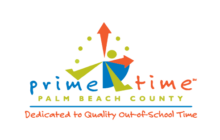9:00 am - 11:00 am
It was a great experience, I learned a lot. It gave me the opportunity to see some areas where I need to work to better my leadership and my program!
Lorena DAfterschool Professional
Advanced Youth Engagement Series – Part 1 – VIRTUAL
Prerequisite: Youth Voice and Planning and Reflection
Participants are REQUIRED TO ATTEND ALL TRAININGS in the series and create and try out tailored activities in between trainings.
By registering for this training, you are committing to all training session dates.
Part 1 – Hands-On, Practical Ways to Facilitate Youth Voice, Planning and Reflection
Part 2 – Follow Up- Participant Presentations
Do you want some more practice engaging youth on a level where they own their learning experiences and are agents of their own development? In this training, youth engagement comes to life in a practical way. This training series offers advanced level hands-on facilitation practice, where you will learn activities that raise the level of engagement for the youth in your program.
You will also implement specific strategies that can be used in everyday activities so that youth have more opportunities for planning, reflection and designing/choosing how they spend their time. Participants will also try out and present lessons and receive feedback on challenges and successes. Walk away with tons of planning, reflection and youth voice strategies you can implement right away!
Upon successful completion of this training series and follow-up assignment(s), the participant will earn 4 clock hours (.4) CEUs of training.
Hands-On, Practical Ways to Facilitate Youth Voice, Planning and Reflection – Part 1
Training Objectives:
Participants will:
- Recall the PBC-PQA youth engagement scale, youth voice, and planning & reflection training
- Examine and implement strategies for higher level of practice in OST
- Design and present relevant lessons using hands-on, youth engagement strategies
Follow Up- Participant Presentations – Part 2
Training Objectives:
Participants will:
- Connect youth voice and planning and reflection strategies to everyday activities
- Present a lesson that includes one or more youth engagement strategies
- Summarize the youth development strategies demonstrated during others’ presentations
Core Knowledge, Skills and Competencies Addressed (CKSCs):
Learning Environments and Curriculum
Language and Communication Development
Apply – C. Encourages children and youth to communicate in a variety of ways.
Apply – I. Uses contextualized teaching strategies to provide children and youth multiple entry points to an activity based on their current knowledge and abilities.
Relationships and Interactions with Children and Youth
Enhancing Group Experiences
Apply – C. Plans and guides group activities to teach children and youth cooperation and collaboration.
Youth Engagement, Voice, and Choice
Individual Child/Youth Guidance
Apply – A. Encourages youth to express their ideas and feelings, support healthy development, meaningful relationships, and program quality.
Primary QIS Scales Addressed
III. Interactive Environment
III-R: Youth have opportunities to make plans
III-S: Youth have opportunities to make choices based on their interests
III-T: Youth have opportunities to reflect

